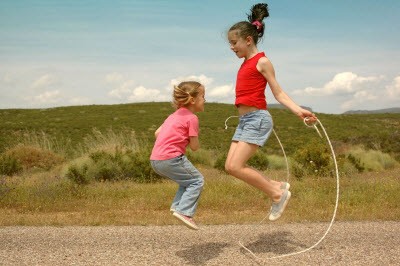Hãy nhập câu hỏi của bạn vào đây, nếu là tài khoản VIP, bạn sẽ được ưu tiên trả lời.

The picture describes a terrible forest-fire. On the left corner of the picture,there is a fireman in the uniform for his job which is the red jacket with white- striped. He is trying to put off the fire with a water pipe on his hand and we can see the nervous and the precipitation on his face. Being not far from him, the fire is burning onto the air. The water pipes are every where on the grass.It can be said that a part of the forest has an extensive damage and all the firemans are trying to complete their work as soon as possible.

dàn ý câu 1:
- What is the name of the festival?
- why do you join in that festival?
- what time do it start?
- what do you do during the festival?
- how do you feel when you join in the festival?
For centuries, poets, writers and musicians have mentioned the ao dai in poems, novels and songs. The ao dai is the traditional dress of Vietnamese women. It consists of a long silk tunic that is slit on the sides and worn over loose pants. Traditionally, it was frequently worn by both men and women. The design and material used for men were different from those used for women. Nowadays, women usually wear it, especially on special occasions. However, many Vietnamese women today often prefer to wear modern clothing at work, because it is more convenient. Now fashion designers want to change the traditional ao dai. Some have printed lines of poetry on the ao dai, so they look modern and very fashionable. Other designers have taken inspiration from Vietnam's ethnic minorities. They have visited villages and studied traditional designs and symbols such as suns, stars, crosses, and stripes. They have added these patterns to the ao dai, so Vienamese women can continue to wear the unique dress, which is now both traditional and fashionable.
hoàn cảnh sáng tác, phương thức biểu đạt, thể loại, nội dung, nghệ thuật của từng văn bản
-Tôi đi học


Câu điều kiện loại 2:
-Diễn tả điều không thể xảy ra ở hiện tại hoặc tương lai.
-Cấu trúc: If + S + V(quá khứ đơn), S + would/could + V(infinitive)
-Ví dụ:
+If people didn't throw garbage on this street, it would look much more beautiful.
+Nghĩa: Nếu người ta không vứt rác trên con đường này, nó sẽ trông đẹp hơn rất nhiều. Thực tế người ta vứt rác trên con đường nay và nó không trông đẹp hơn.
-Ví dụ2:
+If I were you, I wouldn't behave so disrespectfully to your mother.
+Nghĩa: Nếu tôi là bạn, thì tôi sẽ không chấp nhận lời mời của cô ta. Thực tế là "bạn" hành xử thiếu lễ phép với mẹ và "tôi" không thể là "bạn" được. Cấu trúc (If I were you) này thường được dùng để khuyên ai đó 1 cái gì.
*"Be" trong câu điều kiện loại 2 được dùng là "were" với mọi chủ ngữ, cách dùng "was" cũng được chấp nhận.
Câu điều kiện loại 3:
-Diễn tả điều không thể xảy ra ở quá khứ.
-Cấu trúc: If + S + V(quá khứ hoàn thành), S + would/could + have PII
-Ví dụ:
+If you had taken a map with you, you wouldn't have got lost.
+Nghĩa: Nếu mà bạn đã mang cái bản đồ theo, thì bạn đã không bị lạc. Thực tế thì "bạn" đã không mang cái bản đồ và đã bị lạc.
-Ví dụ2:
+If John hadn't bullied his friends, he wouldn't have been punished
+Nghĩa: Nếu John đã không bắt nạt bạn của anh ta, thì anh ta đã không bị phạt. Thực tế là John đã bắt nạt những người bạn của anh ta và anh ta đã bị phạt.

Ta có: \(6=\frac{6\left(x+6\right)}{x+6}=\frac{x+6}{\frac{1}{6}\left(x+6\right)}\)

Dude chính là tiếng lóng mà người phương Tây sử dụng. Giới trẻ Mỹ sử dụng rất rộng rãi và phổ biết trong việc giao tiếp hay trò chuyện cùng với nhau trong một nhóm bạn.
Ý nghĩa :
Dude trong tiếng Anh có nghĩa là “con nhà giàu”
- Trong rất nhiều trường hợp khác thì Dude chính là chỉ một ngừơi, đó chính là việc nói về cậu bé, một người con trai hay hay người thân cận khác.
- Thường thì những người sử dụng Dude có sự thân thiện trong giao tiếp. Họ luôn muốn bày tỏ sự yêu mến của họ với chàng trai hay người đàn ông nào đó mà họ luôn quý trọng.
Được dịch từ tiếng Anh-Dude là tiếng lóng tiếng Anh Mỹ cho một cá nhân, điển hình là nam giới. Từ những năm 1870 đến những năm 1960, anh chàng chủ yếu có nghĩa là một người ăn mặc cực kỳ thời trang hoặc một người dễ tính dễ thấy đang đến thăm một địa điểm nông thôn, một "người trượt tuyết thành phố".

I like living in the countryside for the following reasons. Environmentally, it's a peaceful place. Clean Air. The space is quiet. We can enjoy fresh natural conditions without worrying much about environmental pollution. In terms of social security, the countryside is a safer place than the city. While the security and order situation in urban areas is always complicated with criminals, rural areas are much safer because compatriots are friendly and ready to help each other. Moreover, life in the countryside is also easier than in the city. City people are very susceptible to stress because of pollution, work pressure, competition. In contrast, such bad things in the countryside are rare. In short, except for the income issue, the countryside is a better place to live than the city.

